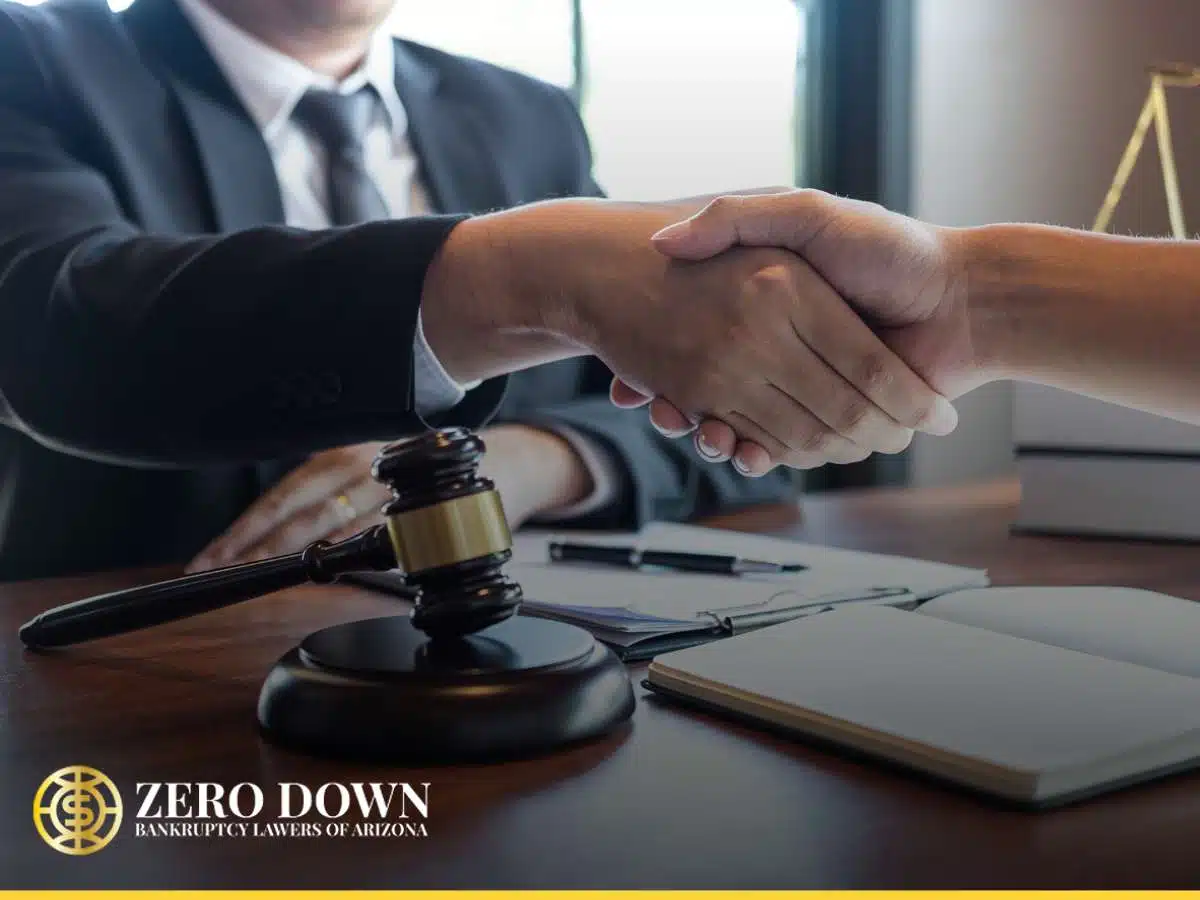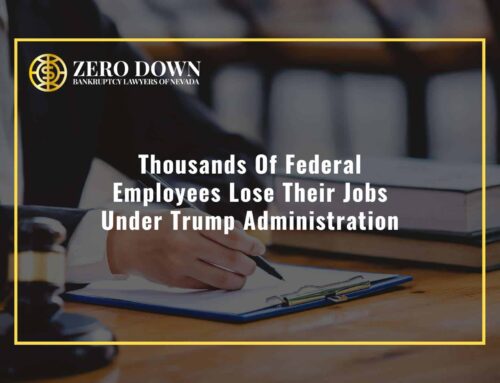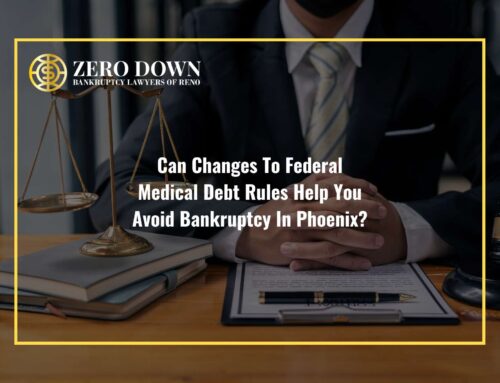Despite price tags that seem to be increasing at an out-of-control rate, grocery stores actually have thin profit margins. And just like many other types of businesses, it is becoming more difficult to staff grocery stores to maintain an optimum level of service. There are also more competitors in the market than ever before, with delivery services like Amazon Fresh and Instacart keeping people at home and sticking to their lists instead of in grocery stores, making impulse purchases. Business bankruptcy filings have been increasing ever since pandemic measures were lifted that kept many companies out of bankruptcy court, at least temporarily. As inflation rises, so has the corporate bankruptcy rate, and one of the latest companies to file for chapter 11 bankruptcy is a popular family-owned grocery store chain. Bankruptcy can provide debt relief to both businesses and individuals that struggle with debts. The rules for bankruptcy are slightly different in every state- for information about declaring bankruptcy in Phoenix or Tucson, Arizona, call 602-609-7000 to schedule your free consultation with our firm.
Sickles Market’s Bankruptcy Filing
Sickles Market is a New Jersey grocery chain that has been in business for over 116 years. It began as a seasonal fruits and vegetables supplier, but switched to year-long operations in 1999. Despite expanding to sell international goods, deli items, and chef-prepared dishes, Sickles has closed its locations and filed for chapter 11 bankruptcy. Its liquor store, Bottles by Sickles, has remained open. Sickles stated in its petition that it had $549,388 in assets and $5.2 million in debts. Sickles’ largest creditor is Northfield Bank with an outstanding balance of $4.5 million. The state of New Jersey also put a lien on Sickles’ liquor license, which is worth $400,000. In total, Sickles Market listed 47 creditors in its bankruptcy petition. Sickles stated on its website that they wish to reopen stores for a comeback, if possible. The good news is that chapter 11 bankruptcy does give business debtors a chance for a comeback.
What Is Different About Chapter 11 Bankruptcy?
Chapter 11 bankruptcy looks much different than the most common forms of consumer bankruptcy, chapter 7 and chapter 13. Most businesses are ineligible to file for chapter 13 bankruptcy but can use chapter 7 bankruptcy to liquidate and shut down. Therefore, most corporate bankruptcy filings are either chapter 11 or chapter 7. Chapter 11 offers business debtors the opportunity to stay open, unlike chapter 7. A business can continue running and try to turn things around rather than throwing in the towel with a chapter 11 bankruptcy filing.
Chapter 11 bankruptcy is a more arduous process than chapter 7 and chapter 13, but there are provisions available for small businesses that expedite deadlines and speed up the entire process. The main component that accelerates the process is eliminating the creditor committee that is typically a part of chapter 11 bankruptcy. To qualify for a small business case, the debtor must have less than $3,024,725 in debt. A small business chapter 11 bankruptcy debtor has to attend a hearing with the trustee known as an initial debtor interview. The debtor will be subject to additional reporting to the trustee throughout their case. To qualify for a subchapter V case, the debtor must have less than $7.5 million in debt. In this type of case, a creditor committee is only appointed upon a showing of cause, but the trustee will facilitate the reorganization plan in addition to their oversight duties. A chapter 11 bankruptcy debtor in a standard case won’t have as much interaction with the trustee.
When a business doesn’t meet the small business or subchapter V requirements, it will be necessary to appoint a creditor committee in their chapter 11 case. Primary creditors make up the creditor committee, who will vote on how certain bankruptcy-related issues will proceed. The committee can also allow or prevent a corporate debtor from taking certain business actions while the case is pending. Ordinary business operations will remain under the company’s own control. The committee might make a proposal for how the company should emerge from bankruptcy if they don’t approve of the company’s own proposed plan.
There are several different reorganization strategies that a corporation can use to emerge from chapter 11 bankruptcy. A common one is to find a new investor who will replenish the company’s funds so that it can regain its footing and reestablish itself in the marketplace. The company may need to downsize to reduce costs and focus on its most profitable customer populations. In this day and age, many businesses need to switch their efforts to prioritize online sales rather than brick-and-mortar locations. Sometimes, the company will find a buyer to take over the entire operation. Chapter 11 bankruptcy can also be used as part of a company shutdown, although it is not a requirement like in chapter 7 cases. In the meantime, Sickles’ assets will be protected from its creditors thanks to bankruptcy’s automatic stay. The automatic stay also goes into effect if a debtor declares chapter 7 or chapter 13 bankruptcy.
Chapter 7 Bankruptcy For Small Businesses
As previously mentioned, chapter 7 bankruptcy is another option for businesses, but only those that are willing to permanently close. Chapter 7 bankruptcy means the end of a company as it must liquidate its assets along with its debts. However, filing for chapter 7 bankruptcy doesn’t prevent the business owner from opening a business ever again. Many business owners don’t with to leave the industry they work in, even after a bankruptcy filing. These business owners can open new companies with different names after completing a chapter 7 bankruptcy case. This is easier with some types of businesses than with others. It is most feasible when the business doesn’t require pricey equipment and inventory to operate. If the bankruptcy debtor chooses to open another business, it must be under a different name, although it can be similar to the previous business name. If you are a small business owner considering chapter 7 bankruptcy in the Phoenix area, don’t hesitate to contact our firm for your free consultation at 602-609-7000.
Filing For Bankruptcy In Phoenix With Zero Dollars Down
The bankruptcy process for the average individual will be much different than that of a grocery store chain. It is still crucial for a consumer debtor to prepare an accurate bankruptcy petition or risk losing funds and assets important to their household. Bankruptcy trustees are tasked with seeking out forgotten or hidden assets to try to contribute as much to the bankruptcy estate as possible. Creditors can also interfere with debts being included in a bankruptcy filing through a petition for relief from the automatic stay or an adversary proceeding. Your best defense against these types of obstacles in your case is to retain a skilled bankruptcy firm. Our dedicated bankruptcy lawyers have spent years helping Phoenix residents achieve favorable outcomes through filing for chapter 7 and chapter 13 bankruptcy. We have flexible payment options to make filing for bankruptcy work with your budget- most of our clients qualify to file for Zero Down Bankruptcy. To learn more with your free consultation, call 602-609-7000 to speak with one of our experienced bankruptcy lawyers. Contact us now!
Arizona Offices
Phoenix Location:
343 W Roosevelt Street, Suite #100
Phoenix, AZ 85003
Email: [email protected]
Phone: 602-609-7000
Mesa Location:
1731 West Baseline Rd., Suite 101
Mesa, AZ 85202
Email: [email protected]
Glendale Location:
20325 N 51st Avenue, Suite #134
Glendale, AZ 85308
Email: [email protected]
Tucson Location:
2 East Congress, Suite #900
Tucson, AZ 85701
Email: [email protected]











